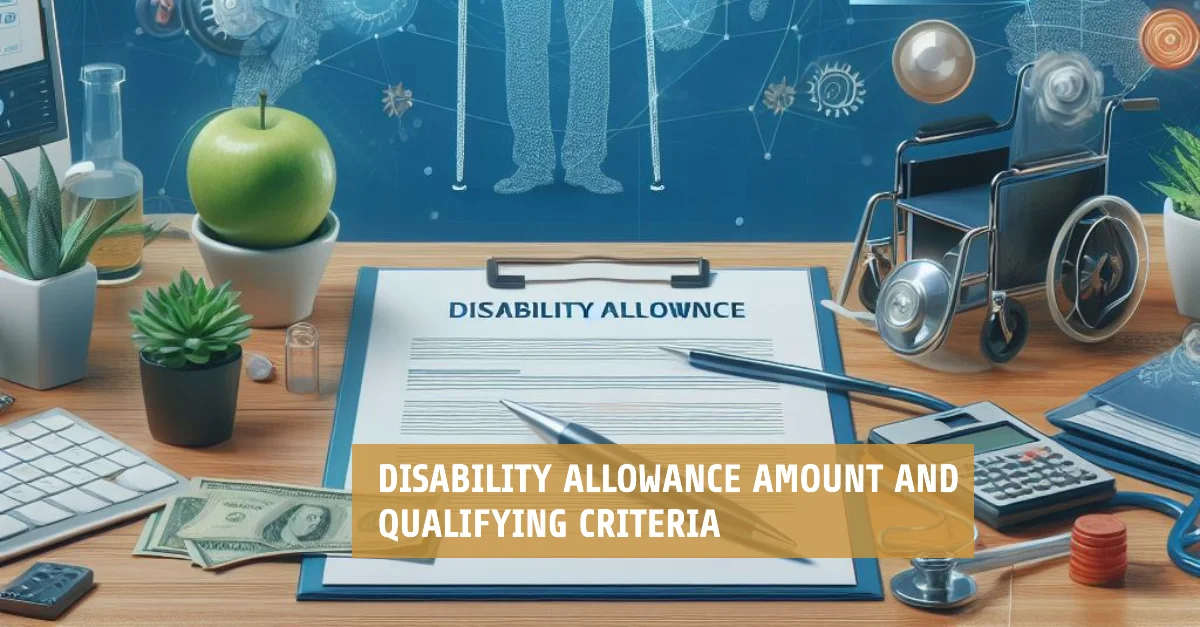For Advertising Contact Us
How Much is Disability Allowance and What Illness or Disability Qualify for it? Complete Details

Disability Allowance is a crucial source of financial support for individuals facing disabilities or illnesses that hinder their ability to work. Understanding how much one can receive and what specific conditions qualify for this allowance is imperative for those seeking assistance. In this comprehensive guide, we will research into the specifics of Disability Allowance, including the amount of financial aid available, the eligibility criteria, and the range of illnesses and disabilities that qualify for this vital support. By the end of this article, you will have a clear understanding of what you or your loved ones may be entitled to and how to navigate the process of applying for Disability Allowance.
Overview of Disability Allowance
Your disability allowance is a valuable financial support provided by the government to individuals who are unable to work due to a disability or illness. This allowance helps cover the extra costs associated with living with a disability and assists in improving the quality of life for those affected.
Definition of Disability Allowance
Disability Allowance is a means-tested payment for people with a specified disability who are aged between 16 and the State Pension age. To qualify for this allowance, the individual must be living in the Republic of Ireland and unable to work for at least 12 months due to a physical or mental disability.
Applicants must also pass a medical assessment to determine their eligibility for the disability allowance. The amount provided can vary depending on individual circumstances and is subject to regular reviews to ensure continued eligibility.
Types of Disability Benefits
Disability benefits in Ireland are designed to provide financial assistance to individuals with disabilities who are in need of support. Some of the main types of disability benefits available include Disability Allowance, Invalidity Pension, Carer’s Allowance, and Blind Pension.
| Disability Allowance | Financial support for those unable to work due to disability |
| Invalidity Pension | For individuals who are permanently incapable of work |
| Carer’s Allowance | For those providing full-time care for a person with a disability |
| Blind Pension | Financial support for individuals who are registered blind |
With Disability benefits, it is imperative to understand the specific criteria and requirements for each type of benefit before applying. Each benefit has its own set of eligibility conditions and payment rates, so it is crucial to determine which one best suits your circumstances.
- Assume that you meet the necessary criteria and have all required documentation when applying for disability benefits.
Assessing Eligibility Criteria
Clearly, before applying for Disability Allowance, it is crucial to understand the eligibility criteria set forth by the government. This ensures that individuals with genuine needs receive the financial support they require.
Qualifying Illnesses and Disabilities
For individuals to qualify for Disability Allowance, they must have a long-term illness, injury, or disability that significantly impacts their ability to work. This includes conditions such as chronic pain, mental health disorders, physical disabilities, and cognitive impairments. The severity of the condition and its impact on daily functioning are key factors in determining eligibility.
It is vital for applicants to provide medical documentation supporting their diagnosis and how it affects their ability to work. In some cases, further assessments by healthcare professionals may be required to determine eligibility for the Disability Allowance.
Factors Affecting Eligibility
Eligibility for Disability Allowance is also influenced by a range of factors, including age, income, and employment status. These factors help determine the level of financial support individuals may receive and whether they meet the criteria for the allowance.
- Age: Age can impact eligibility for Disability Allowance, with different criteria for younger and older individuals.
- Income: Income levels play a role in determining the amount of support individuals may receive through the allowance.
- Employment status: Whether an individual is able to work or is seeking employment can affect their eligibility for Disability Allowance.
It is important to have a comprehensive understanding of these factors affecting eligibility to determine if one meets the criteria for Disability Allowance. Knowing how these factors are assessed can help individuals navigate the application process more effectively and ensure they receive the support they need.
Step-by-Step Guide to Applying for Disability Allowance
Keep in mind that applying for Disability Allowance can be a complex process, but breaking it down into manageable steps can make it more straightforward. Below is a step-by-step guide to help you navigate the application process smoothly:
| Step 1 | Gather all necessary documentation |
| Step 2 | Complete the application form accurately |
| Step 3 | Submit the application along with supporting documents |
| Step 4 | Attend any required medical assessments |
| Step 5 | Wait for a decision on your application |
Gathering Necessary Documentation
One of the first steps in the Disability Allowance application process is gathering all the necessary documentation. This typically includes medical records, doctor’s notes, test results, and any relevant information about your disability or illness. It’s necessary to gather comprehensive and up-to-date documentation to support your application.
Additionally, you may need to provide proof of income, identification documents, and any other relevant paperwork as requested by the Disability Allowance office. Make sure to organize all your documents neatly and keep copies for your records.
Tips for a Successful Application Process
With Disability Allowance applications, attention to detail is crucial. Here are some tips to help you navigate the process smoothly:
- Provide accurate information in your application forms
- Be truthful about your condition and limitations
- Keep copies of all documents submitted
This will help ensure that your application is processed efficiently and increases your chances of a successful outcome. Accuracy and honesty are key components in the Disability Allowance application process.
Gathering comprehensive and relevant documentation is necessary for a successful Disability Allowance application. This includes medical records, doctor’s notes, and any other paperwork that can substantiate your disability or illness. Thorough preparation is key to a smooth application process.
Maximizing Disability Allowance
Once again, when it comes to maximizing your disability allowance, it’s imperative to explore all your options and strategies. By understanding the pros and cons of different allowance options and implementing effective strategies, you can enhance your benefits and ensure you are receiving the assistance you need.
Pros and Cons of Different Allowance Options
Allowance
| Option | Pros and Cons |
| Cash allowance | Pros: Provides flexibility in how the funds are used. Cons: May not cover all necessary expenses. |
| Medical benefits | Pros: Covers healthcare costs. Cons: Limited to medical expenses only. |
| Housing allowance | Pros: Helps with housing costs. Cons: Can be restrictive in use. |
| Transportation allowance | Pros: Assists with travel expenses. Cons: Limited to transportation costs. |
| Employment support allowance | Pros: Encourages work participation. Cons: Can be complex to qualify for. |
Strategies to Enhance Your Benefits
Options
When looking to enhance your disability benefits, consider exploring different avenues such as maximizing your eligibility for multiple types of allowances, seeking professional guidance to navigate the application process, and keeping thorough documentation of your medical condition and expenses. By taking a proactive approach and leveraging available resources, you can optimize your benefits and improve your financial stability.
To ensure you are receiving the maximum support available for your disability, it’s crucial to stay informed about the latest policies and regulations that may impact your eligibility. By staying proactive and seeking assistance when needed, you can better navigate the system and secure the benefits you deserve.
Final Words
As a reminder, the amount of Disability Allowance can vary depending on individual circumstances and living arrangements, but it typically ranges from €203 to €230 per week. To qualify for this benefit, individuals must have a specified illness or disability that significantly impacts their ability to work. It is important to thoroughly review the criteria outlined by the Department of Social Protection to ensure eligibility and to provide all necessary documentation when applying. If you or someone you know may qualify for the Disability Allowance, it is recommended to seek advice from a social welfare professional or advocate to navigate the application process successfully. Understanding the details of this support can make a significant difference in the quality of life for those living with disabilities or illnesses.







